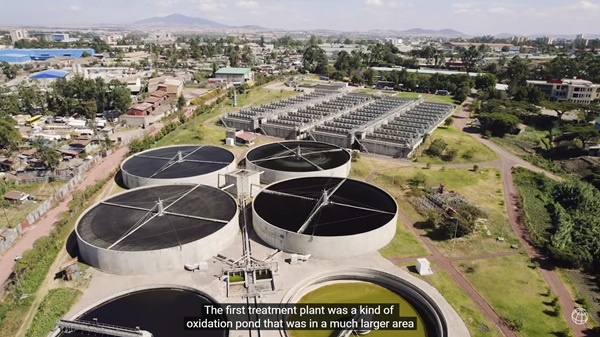
An Urban Water Supply and Sanitation Project in Ethiopia has helped build 1,000 sanitation facilities in Addis Ababa and 22 other cities in the country.
(The World Bank Group) – Six years ago, Lubaba Mohammed returned to Addis Ababa, Ethiopia, after years working abroad as a housemaid. Struggling to find employment, she registered as unemployed with the local “woreda” (city administration). This decision marked the start of an unexpected journey in urban sanitation.
She joined a micro-enterprise “Tsehay, Mehret and Friends,” comprising eight women and two men. Their mission? To manage a newly established public toilet facility in the bustling Arat Kilo neighborhood, near a university campus.
Initially, the project faced skepticism. Lubaba recalls, “It took us about two years to change people’s perception and get them to start paying for using the toilet. They were used to the other poorly maintained free public toilets or were simply relieving themselves out in the open.” However, through persistence and dedicated maintenance, public opinion started to shift. Now, the facility is a symbol of cleanliness and community pride.
This transformation extended beyond just sanitation. “Before, this area was marred by open defecation and roadside waste,” Lubaba notes. “Now, it’s clean.” The team also diversified their service by setting up a stand selling bottled water, coffee, tea, and snacks, tapping into the nearby student population. While the earnings are modest, they have enabled Lubaba to support her family and send her two children to school. To increase their income, the members of the micro-enterprise would like to set up a shower facility, and install a shade above their coffee stand, catering to the high demand from students and locals.
This facility is one of 1,000 similar sanitation projects that have been built in Addis Ababa and 22 other cities across the country with the support of the World Bank through the Second Ethiopia Urban Water Supply and Sanitation Project. The project is funded through the International Development Association (IDA), the part of the World Bank that helps the world’s poorest countries.
“The first thing we tried to do through this project is to change the attitude of people regarding sanitation. This is what I am most proud of,” says Frehiwot Zewdie, Project Coordinator within Ethiopia’s Ministry of Water and Energy. “Before this project happened, many of the higher officials did not understand the sanitation situation and the effects of inadequate sanitation in the country. Today, most officials and people have positive views on sanitation. Of course, this must be accompanied by the right infrastructure, otherwise awareness building on its own will not bring any change.”
Continue reading this story at The World Bank Group
